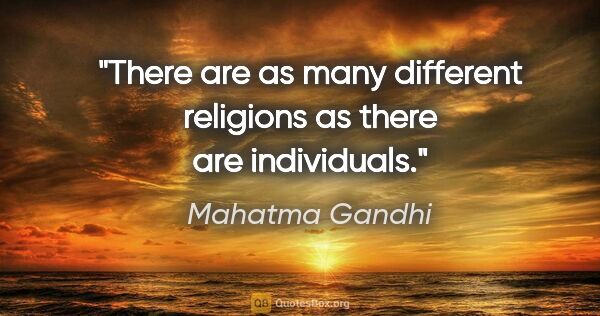Individual Differences Quotes (page 2)
The alternate domination of one faction over another, sharpened by the spirit of revenge, natural to party dissension, which in different ages and countries has perpetrated the most horrid enormities, is itself a frightful despotism. But this leads at length to a more formal and permanent despotism. The disorders and miseries, which result, gradually incline the minds of men to seek security and repose in the absolute power of an individual; and sooner or later the chief of some prevailing...
George Washington
What is unique about the "I" hides itself exactly in what is unimaginable about a person. All we are able to imagine is what makes everyone like everyone else, what people have in common. The individual "I" is what differs from the common stock, that is, what cannot be guessed at or calculated, what must be unveiled, uncovered, conquered.
Milan Kundera
This was his acknowledgment of the impossibility of changing a man's convictions by words, and his recognition of the possibility of everyone thinking, feeling, and seeing things each from his own point of view. This legitimate peculiarity of each individual which used to excite and irritate Pierre now became a basis of the sympathy he felt for, and the interest he took in, other people. The difference, and sometimes complete contradiction, between men's opinions and their lives, and between...
Leo Tolstoy
It is possible to be honest every day. It is possible to live so that others can trust us-can trust our words, our motives, and our actions. Our examples are vital to those who sit at our feet as well as those who watch from a distance. Our own constant self-improvement will become as a polar star to those within our individual spheres of influence. They will remember longer what they saw in us than what they heard from us. Our attitude, our point of view, can make a tremendous difference.
Gordon B. Hinckley
The human psyche has two great sicknesses: the urge to carry vendetta across generations, and the tendency to fasten group labels on people rather than see them as individuals. Abrahamic religion mixes explosively with (and gives strong sanction to) both. Only the willfully blind could fail to implicate the divisive force of religion in most, if not all, of the violent enmities in the world today. Without a doubt it is the prime aggravator of the Middle East. Those of us who have for...
Richard Dawkins
An increased power of reflection like an increased knowledge only adds to man's affliction, and above all it is certain that for the individual as for the generation no task is more difficult than to escape from the temptations of reflection, simply because they are so dialectical and the result of one clever discovery may give the whole question a new turn, because at any moment reflection is capable of explaining everything quite differently and allowing one some way of escape; because at...
Soren Kierkegaard
Man has no individual i. But there are, instead, hundreds and thousands of separate small "i"s, very often entirely unknown to one another, never coming into contact, or, on the contrary, hostile to each other, mutually exclusive and incompatible. Each minute, each moment, man is saying or thinking, "i". And each time his i is different. just now it was a thought, now it is a desire, now a sensation, now another thought, and so on, endlessly. Man is a plurality. Man's name is legion.
G. I. Gurdjieff
I can tell by my own reaction to it that this book is harmful." But let him only wait and perhaps one day he will admit to himself that this same book has done him a great service by bringing out the hidden sickness of his heart and making it visible.— Altered opinions do not alter a man’s character (or do so very little); but they do illuminate individual aspects of the constellation of his personality which with a different constellation of opinions had hitherto remained dark and...
Friedrich Nietzsche
Their point of resemblance to each other and their difference from so many American women, lay in the fact that they were all happy to exist in a man's world--they preserved their individuality through men and not by opposition to them. They would all three have made alternatively good courtesans or good wives not by the accident of birth but through the greater accident of finding their man or not finding him.
F. Scott Fitzgerald
A way of life can be shared among individuals of different ages, status, and social activity. It can yield intense relations not resembling those that are institutionalized. It seems to me that a way of life can yield a culture and an ethics. To be "gay," I think, is not to identify with the psychological traits and the visible masks of the homosexual but to try and define and develop a way of life.
Michel Foucault
John Stuart Mill (20 May 1806? 8 May 1873), English philosopher, political theorist, political economist, civil servant and Member of Parliament, was an influential liberal thinker of the 19th century whose works on liberty justified freedom of the individual in opposition to unlimited state control. He was an exponent of utilitarianism, an ethical theory developed by Jeremy Bentham, although his conception of it was very different from Bentham's. He clearly set forth the premises of the...
John Stuart Mill
Human beings look separate because you see them walking about separately. But then we are so made that we can see only the present moment. If we could see the past, then of course it would look different. For there was a time when every man was part of his mother, and (earlier still) part of his father as well, and when they were part of his grandparents. If you could see humanity spread out in time, as God sees it, it would look like one single growing thing--rather like a very complicated...
C. S. Lewis
